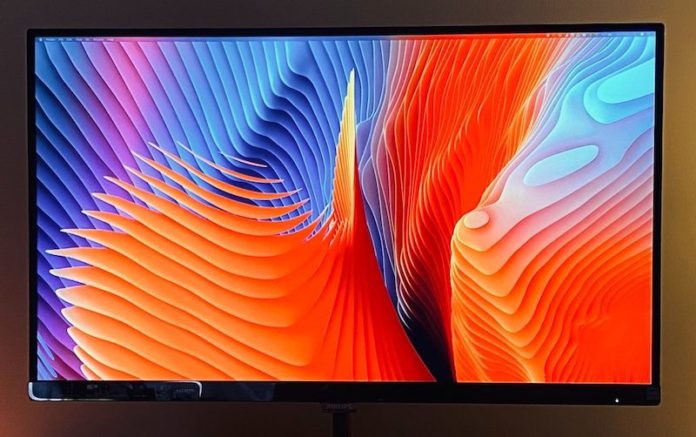For most, it is not often that they have an extra digital display just lying around. These moments tend to emerge when you’re investing in something new. While you’re proud of the 4K setup you have going on in your business or storefront, what is one to do with all the old low resolution displays that can’t compare to your new installments?
You might even be unwilling to invest in a new set of displays because your old setup is still functioning and it would feel like a waste since you would have displays lying around without a purpose. Let’s give them one! Here are several ways to utilize low resolution displays wisely.
1. Make your old displays interactive
Interactivity opens up more possibilities. When it comes to displays, there are many paths to interactivity.
Touchscreen is the first word that comes to mind. You can transform any display into a touchscreen, but you will need to invest in a touchscreen overlay. As we said, there are many paths to interactivity. You could grant your old display motion sensitivity for it to trigger content based on motion. This too will require you to invest in a motion sensor.
The simplest path to interactivity is through QR codes. They’re best for simple interactivity you want to grant your consumers. Create digital signage campaigns and have the user trigger them by scanning a QR code. If you make your campaigns complex enough, the customer’s QR scanner can essentially act as a virtual touch upon a virtual touchscreen.
2. Display stunning visuals and eye candy
Stunning visuals are not reserved to 4k or 8k displays. Low resolution displays can be your creative canvas. Study your establishment’s interior/exterior and see where a spontaneous burst of color might find a home.
When you’re promoting a particular product, setting up a display behind it can be an additional visual kick. Another idea: turn the display horizontally, add a layer of glass over it and use it as a physical platform to place items on.
When it comes to incorporating digital displays for visual components, it all comes down to location. You don’t want it to cause clutter.
Another idea—best used when you’ve done a grand equipment update and have several old displays lying around—is to build a video wall! This would truly create a stunning visual experience and find a purpose for multiple displays in one swipe!
3. Enrich your store-front
Plenty of places tend to reserve the use of digital displays for the indoor audience. Don’t forget the store-front and the audience outdoors. We just mentioned the use of a display as a backdrop or a platform for particular products. Using that setup in your storefront promotes products or services and attracts attention.
Given the current pandemic situation we live in, you could assign one of your older displays to PSAs and reminders of guidelines for consumers who enter your store.
4. Transform old displays into magic mirrors
A smart mirror, or magic mirror, is a display which acts as a mirror but also displays information. It is composed of a display which has a two-way mirror overlay. This overlay is see-through on one side and reflective on the other.
A magic mirror is an excellent use for your old displays, but you will need to spend a bit on the additional components. Altogether it’s a worthwhile investment, but only if you’re willing to invest in effort too. It requires some time to build.If you are a DIY sort of person, this will be the perfect task!
Here’s a video showing the process of building a magic mirror. Of course, you can adapt as you see fit. Perhaps change the frame setup or conceal the frame with a different type of decoration. Do be careful, especially if you plan on disassembling the display.
5. Entertainment
That’s one simple word which covers a lot of content types. Encouraging messages of positivity, social media feeds, cartoons—you name it. Entertainment is a purpose of digital signage often put last on the priority list. There are so many other business and profit-focused uses that come first.
But regardless of your venture type, look into using a display for entertainment purposes. Be it something as energetic and appealing as a cartoon or as generic as a weather forecast, it can breathe life into a room. The greatest challenge with using entertainment in this context is to avoid overloading the viewer with information. Only use entertainment where it’s fitting, such as waiting rooms or lounges where there are few other displays.
6. Sell your displays
The last resort, and perhaps not the most creative use, but selling your displays or giving them away to someone who is just starting with digital signage is an option. For users who are just starting out, they might not be ready for a large scale investment, so they will surely welcome a hand-me-down display to use as a starting point.
7. Invest in low resolution displays
This is likely a guideline you didn’t expect to see in such an article, but it makes total sense if you think about it. Depending on what you need a display for, you might find there’s no need for the latest HD installment. Prices for low resolution displays have dropped rapidly once massive 4k became the norm.
If you need a tool to broadcast PSAs, entertainment, or if you want to build a video wall to deliver that special visual kick, investing in cheap low resolution displays is a wise choice.
Upgrade old displays with digital signage software
All of the above mentioned uses, apart from the selling and investing, are quite easy to achieve using digital signage software. Here’s a quick recap!
- Interactivity – You’ve seen the example of using QR codes to allow customers to interact, which is a breeze to set up with digital signage software.
- Visuals and eye candy – Digital signage software can help you manage the content on your video walls and displays flawlessly to ensure a proper change in imagery throughout the day.
- Storefront enhancement – Scheduled content rotations will keep your content rich and diverse.
- Entertainment – Be it a Twitter feed or a YouTube video, digital signage software can provide endless entertainment. Apply a magic mirror and you have yourself a refurbished display which is as good as new!
In case you are new to digital signage, you can begin testing software immediately with something as small as a smartphone or a laptop, and then move on to applying it to your digital displays, old and new.








